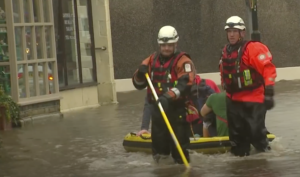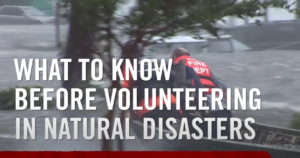When volunteering, it’s important to be mindful of the environmental impact of your activities, ensuring that your efforts contribute positively to both the community and the planet. One key consideration is minimizing waste. This can be achieved by reducing single-use plastics, recycling materials whenever possible, and opting for reusable items like water bottles or bags. Additionally, if your volunteer work involves travel, consider using sustainable transportation options such as biking, walking, or public transit to reduce your carbon footprint.
Respect The Natural Beauty, Leave No Trace
 If your volunteer activities take place outdoors, respect nature by following Leave No Trace principles—this includes staying on designated paths, avoiding disturbing wildlife, and picking up any trash. For projects that involve construction or landscaping, prioritize eco-friendly materials and techniques, such as using non-toxic paints or native plants that require less water and are better for local ecosystems. Lastly, promoting environmental awareness within the community can be a crucial part of volunteering—by encouraging others to adopt sustainable practices, you help create a ripple effect that extends far beyond your individual efforts.
If your volunteer activities take place outdoors, respect nature by following Leave No Trace principles—this includes staying on designated paths, avoiding disturbing wildlife, and picking up any trash. For projects that involve construction or landscaping, prioritize eco-friendly materials and techniques, such as using non-toxic paints or native plants that require less water and are better for local ecosystems. Lastly, promoting environmental awareness within the community can be a crucial part of volunteering—by encouraging others to adopt sustainable practices, you help create a ripple effect that extends far beyond your individual efforts.
Eco Friendly And Natural Cleaners
Eco-friendly cleaners offer a natural and non-toxic way to tackle everyday cleaning tasks, including the removal of rust. One of the most effective and environmentally friendly options is using lemon, which has natural acidity that can break down rust without the harsh chemicals found in commercial cleaners. To remove rust with lemon, simply squeeze fresh lemon juice onto the affected area, allowing it to soak into the rust for several minutes. The citric acid in the lemon rust removal helps dissolve the rust, making it easier to scrub away with a soft brush or sponge. For tougher rust stains, you can sprinkle some baking soda over the lemon juice, creating a mildly abrasive paste that works even more effectively to lift the corrosion.
Natural Disaster Clean Up
 Volunteering for cleanup efforts in areas affected by environmental disasters is a powerful way to contribute to the recovery and healing of impacted communities. Whether it’s after a hurricane, wildfire, oil spill, or flooding, these disasters often leave behind widespread damage, threatening local ecosystems, wildlife, and human populations. Volunteers play a critical role in mitigating the immediate effects and restoring damaged environments. Cleanup efforts often involve removing debris, pollutants, and hazardous materials from land and water, as well as assisting with the rehabilitation of affected habitats.
Volunteering for cleanup efforts in areas affected by environmental disasters is a powerful way to contribute to the recovery and healing of impacted communities. Whether it’s after a hurricane, wildfire, oil spill, or flooding, these disasters often leave behind widespread damage, threatening local ecosystems, wildlife, and human populations. Volunteers play a critical role in mitigating the immediate effects and restoring damaged environments. Cleanup efforts often involve removing debris, pollutants, and hazardous materials from land and water, as well as assisting with the rehabilitation of affected habitats.
While participating in such efforts, volunteers should consider environmentally friendly approaches—such as using non-toxic and biodegradable cleaning supplies when possible, and ensuring that waste is disposed of properly to prevent further contamination. It’s also important to follow safety protocols to protect both yourself and the environment from lingering hazards, such as exposed chemicals or contaminated water.
Beyond the physical labor, volunteers can help raise awareness of the long-term environmental consequences of such disasters, advocating for sustainable practices that reduce the likelihood of future occurrences. In addition, helping communities rebuild with a focus on resilience—such as planting native vegetation or restoring natural barriers—can make ecosystems more robust and better able to withstand future environmental challenges. Volunteering in disaster cleanup not only provides immediate assistance but also fosters a deeper understanding of the complex relationship between human activity and the environment, empowering individuals to take action toward a more sustainable future.